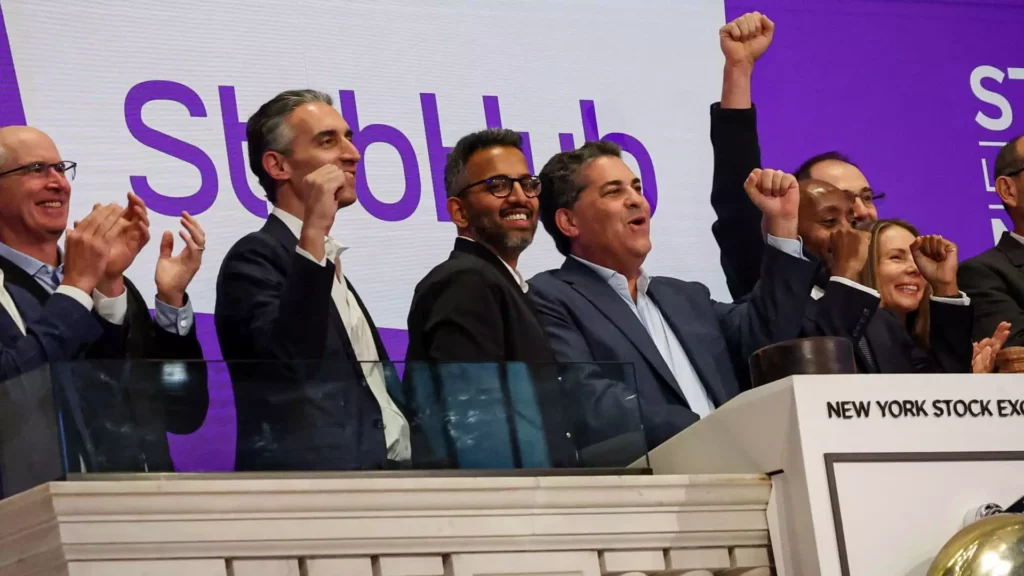The recent debut of StubHub on the New York Stock Exchange serves as a stark reminder of the overexuberance that continues to underpin the recent tech and digital marketplace booms. Despite a modest 5% decline immediately following the IPO, investors still bought into StubHub’s offering at the mid-range price, raising a substantial $800 million. However, beneath this veneer of optimism lies a foundation riddled with vulnerabilities. The fact that StubHub’s shares opened higher than the IPO price yet quickly retreated demonstrates a troubling disconnect between investor enthusiasm and underlying business fundamentals. It reveals an overconfidence in a market that, in reality, remains fragile and dependent on a boom in live events—a recovery that could quickly reverse should economic conditions tighten.
The Misleading Narrative of a Post-Pandemic Revival
StubHub’s resurgence seems to be predicated on the notion that live events and ticket sales are rebounding robustly after pandemic-induced lows. Sure, blockbuster tours like Taylor Swift’s Eras Tour or Beyoncé’s Renaissance have created temporary spikes in sales. But these are anomalies that mask the volatility typical of the ticketing industry. The company’s own disclosures acknowledge that revenue streams are “lumpy and difficult to predict,” revealing that the so-called recovery is not as stable or sustainable as it appears. Relying on occasional mega-events to justify valuation is a risky gamble that could backfire if consumer spending shifts or if new health concerns dampen large gatherings again. This precarious dependence exposes StubHub’s fragility in an economic environment that remains unpredictable, especially with looming recession risks and inflation.
The IPO: A Narrative of Overoptimism and Market Mania
StubHub’s IPO was strategically positioned amid a wave of recent tech offerings, many of which have also struggled. While the market has seen a surge of entities like Klarna, Gemini, Figma, and Circle, each with their own issues, they reflect a broader pattern of overhyped expectations. Deploying billions into fintech, crypto, and tech companies—while some are fundamentally unprofitable or highly speculative—has created an overheated environment. StubHub’s own history is emblematic of this overconfidence. From being acquired by eBay for $310 million and sold back to co-founder Eric Baker for nearly $4 billion, the company’s valuation swings demonstrate how investor narratives can inflate worth beyond realistic assessment. The IPO continues this trend, buoyed by a perception that a once-troubled ticketing business has somehow become more valuable simply because live events are returning.
The Underbelly: Competition, Regulatory Risks, and Market Realities
Beyond overvaluation, StubHub faces serious operational and regulatory headwinds that threaten its future. Its competitive landscape includes well-entrenched players like Ticketmaster, which itself is under scrutiny for anti-competitive practices and bot suppression failures. The Federal Trade Commission is actively probing Ticketmaster for allegedly enabling scalpers and automated bots to circumvent per-event ticket limits—issues that could eventually extend to StubHub. Additionally, the company has been warned about “junk fees,” forcing it to confront transparency issues that could erode consumer trust. Such regulatory threats reveal a systemic weakness in the market that is often underestimated by investors seeking short-term gains. The market’s focus on growth and hype often blinds it to these structural flaws, a dangerous oversight in a sector prone to legal and operational pitfalls.
Ultimately, StubHub’s IPO exposes the overhyped optimism that continues to dominate financial markets—a reckless belief that everything will rebound without considering the inherent risks. The company’s shaky valuation, susceptible market position, and regulatory pressures underscore a broader distrust in the sustainability of the current economic environment. Investors should be wary, not complacent. The excitement surrounding StubHub’s debut masks a deeper reality: the marketplace remains volatile, and the assumption that a near-term spike in event spending signifies long-term stability borders on wishful thinking. As the market continues to chase after fleeting gains, it risks inflating a bubble that will eventually burst when the underlying fundamentals come into harsh focus.









Leave a Reply